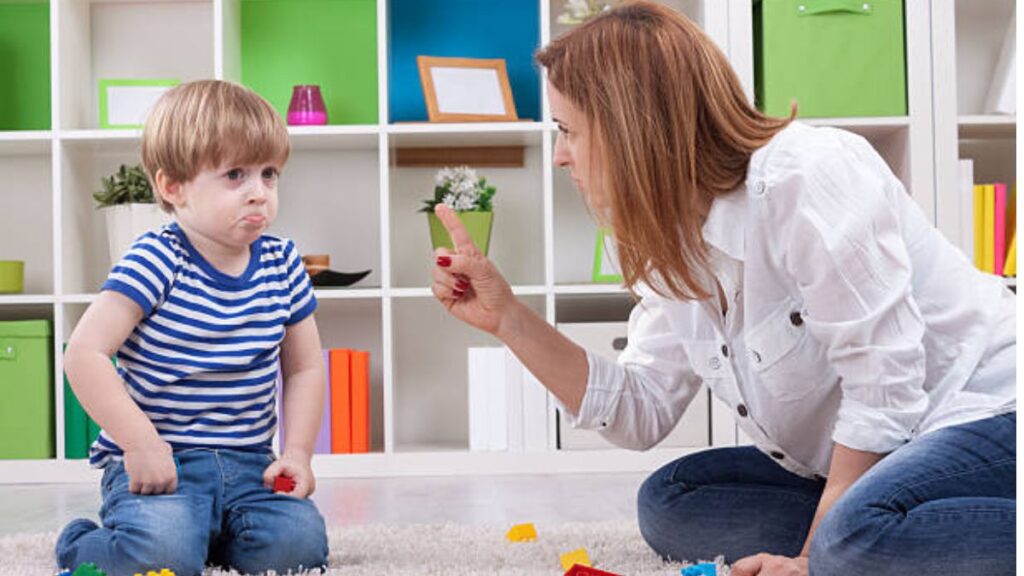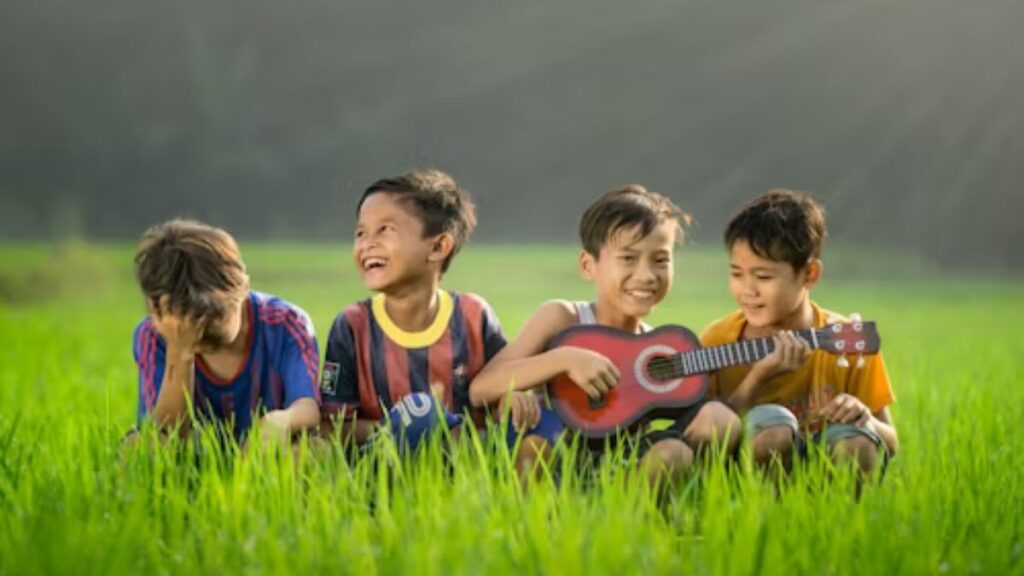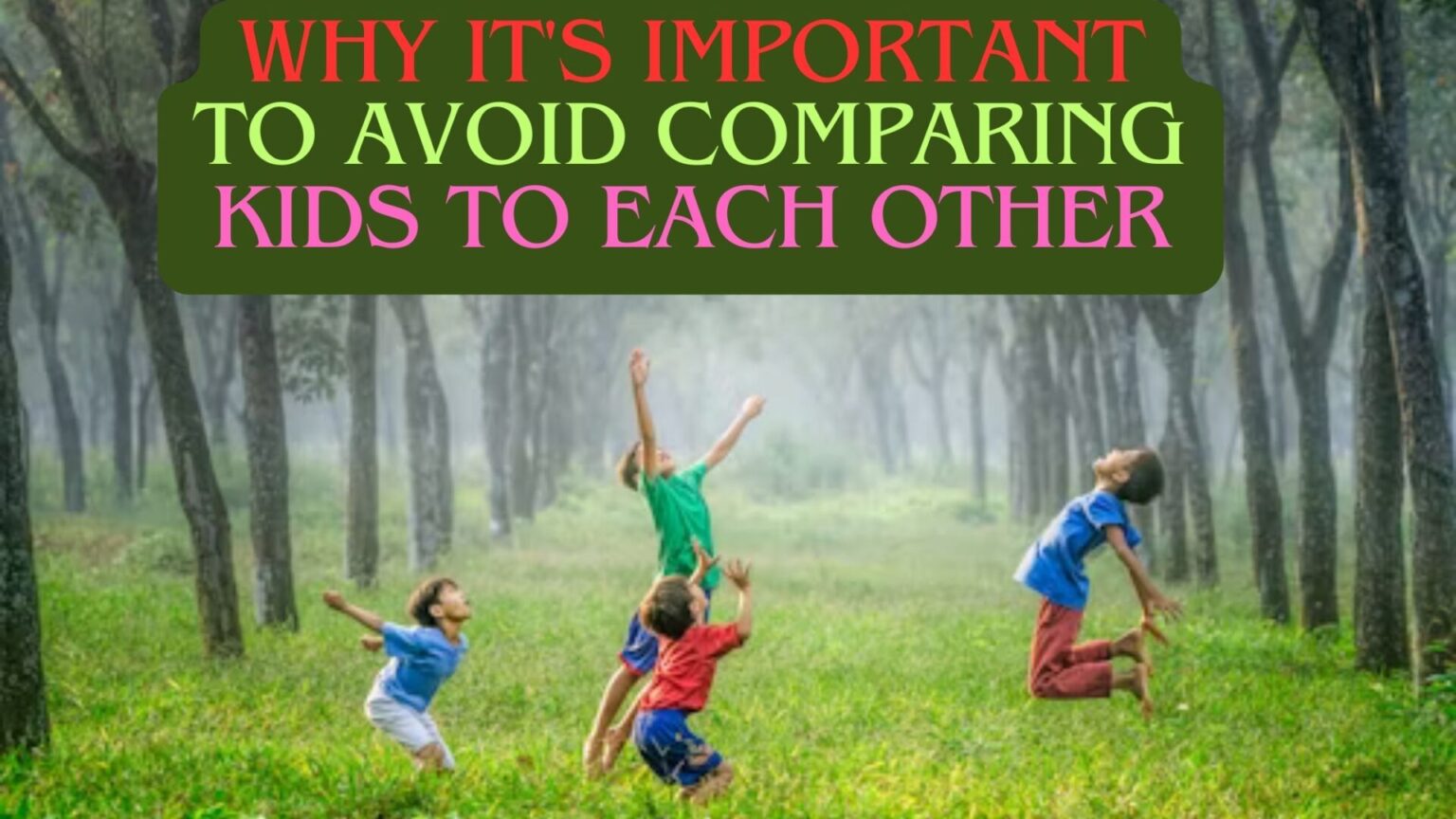Introduction:-
Why It’s Important to Avoid Comparing Kids to Each Other

In a world where comparisons seem to be everywhere, it’s crucial to remember that every child is unique. Comparing one child to another can have negative effects on their self-esteem and confidence. Here’s why it’s important to avoid these comparisons and how it can benefit children in the long run.
Firstly, comparing children can create feelings of inadequacy and low self-worth. When a child constantly hears phrases like “Why can’t you be more like your sibling?” or “Look how well your friend is doing in school,” they may start to believe that they’re not good enough as they are. This can lead to a lack of confidence and a fear of failure.
Moreover, comparing children can strain relationships between siblings and friends. Constantly pitting one child against another can create jealousy and resentment, leading to conflict and tension in the family or among peers. Instead of fostering healthy competition, it can breed animosity and rivalry.
Additionally, comparing children overlooks their individual strengths and talents. Every child has their own unique abilities and interests, and comparing them to others can overshadow these qualities. By focusing on their differences rather than their similarities, we can celebrate each child’s achievements and help them thrive in their own way.
Furthermore, comparing children can hinder their development and hinder their sense of identity. Instead of encouraging them to explore their interests and pursue their passions, it pushes them towards conforming to someone else’s standards. This can stifle their creativity and inhibit their personal growth.
“How does comparing kids affect their self-esteem?”(Avoid Comparing Kids )
Comparing kids can significantly impact their self-esteem in several ways:
- Feelings of inadequacy: Constant comparisons to siblings, peers, or societal standards can make children feel like they’re not good enough or that they don’t measure up. This can lead to feelings of inadequacy and low self-worth.
- Fear of failure: When children are constantly compared to others who seem to excel in certain areas, they may develop a fear of failure. They may worry that they’ll never be able to meet the same standards as their peers, leading to a lack of confidence in their abilities.
- Negative self-image: Comparisons can distort children’s perceptions of themselves, leading to a negative self-image. They may begin to focus only on their perceived flaws or shortcomings, rather than recognizing their unique strengths and talents.
- Decreased motivation: Being constantly compared to others can also decrease children’s motivation to try new things or pursue their interests. They may feel discouraged from taking risks or challenging themselves, fearing that they’ll never be as successful as their peers.
- Strained relationships: Constant comparisons can create tension and resentment between siblings or peers. Children may feel jealous or resentful towards those they’re compared to, leading to strained relationships and conflict.
Overall, comparing kids can have a profound impact on their self-esteem, shaping how they view themselves and their abilities. It’s important for parents, caregivers, and educators to foster a supportive environment that encourages children to embrace their uniqueness and build confidence in who they are.
“What are the negative effects of comparing children?”

Comparing children can have several negative effects, including:
- Low self-esteem: Constant comparisons can make children feel inadequate or inferior to their peers, leading to a decrease in self-esteem and confidence.
- Jealousy and resentment: Children who are frequently compared to others may experience feelings of jealousy or resentment towards their siblings, peers, or even themselves.
- Strained relationships: Comparisons can create tension and conflict between siblings or peers, as children may feel resentful towards those they’re compared to.
- Fear of failure: Being constantly compared to others can instill a fear of failure in children, as they may worry that they’ll never be able to meet the same standards as their peers.
- Limited self-expression: Children who are compared to others may feel pressured to conform to certain expectations or standards, limiting their ability to express themselves authentically.
- Decreased motivation: Comparisons can also decrease children’s motivation to try new things or pursue their interests, as they may feel discouraged from taking risks or challenging themselves.
Overall, comparing children can have long-lasting negative effects on their emotional well-being and development. It’s important for parents, caregivers, and educators to foster a supportive environment that celebrates each child’s unique strengths and talents, rather than comparing them to others.
“What can parents do to boost their child’s self-confidence?”
Parents can take several steps to boost their child’s self-confidence:

- Provide unconditional love and support: Expressing love and support for your child, regardless of their successes or failures, helps them feel valued and accepted.
- Encourage autonomy: Allow your child to make age-appropriate decisions and take on responsibilities. Feeling competent and capable in their abilities can boost their confidence.
- Celebrate achievements: Acknowledge and celebrate your child’s accomplishments, no matter how small. This reinforces their sense of competence and encourages them to take on new challenges.
- Focus on effort, not just outcomes: Praise your child for their hard work, perseverance, and effort, rather than solely focusing on the end result. This teaches them that success is not just about winning or achieving perfection but about the process of learning and growing.
- Provide constructive feedback: Offer constructive feedback in a supportive and encouraging manner. Help your child identify areas for improvement while also highlighting their strengths.
- Encourage positive self-talk: Teach your child to replace negative self-talk with positive affirmations and self-encouragement. Remind them of their strengths and abilities during challenging times.
- Promote resilience: Help your child develop resilience by teaching them how to bounce back from setbacks and failures. Encourage them to view challenges as opportunities for growth and learning.
- Foster a growth mindset: Encourage your child to adopt a growth mindset, where they believe that their abilities can be developed through effort and perseverance. This mindset promotes resilience and a willingness to take on new challenges.
- Lead by example: Be a positive role model for your child by demonstrating confidence, resilience, and a growth mindset in your own actions and behaviors.
- Provide a supportive environment: Create a safe and nurturing environment where your child feels comfortable expressing themselves, trying new things, and making mistakes without fear of judgment.
By implementing these strategies, parents can play a crucial role in helping their child develop a strong sense of self-confidence and resilience that will benefit them throughout their lives.
In conclusion,
avoiding child-to-child comparisons is essential for promoting positive self-esteem, nurturing healthy relationships, and fostering individuality. By embracing each child’s uniqueness and celebrating their differences, we can create a supportive environment where every child feels valued and empowered to reach their full potential.
Frequently Asked Questions (FAQs)
- Why is it harmful to compare children to each other?
Comparing children can lead to feelings of inadequacy, low self-esteem, and strained relationships. It can also hinder their development and sense of identity by overlooking their individual strengths and talents.
- How can comparing children affect their relationships with siblings and friends? Constant comparisons can create jealousy and resentment among siblings and peers, leading to conflict and tension in relationships.
- What are the long-term effects of comparing children?
Comparing children can have lasting effects on their self-esteem and confidence, impacting their ability to thrive and pursue their passions in the future.
- What can parents and caregivers do instead of comparing children?
Instead of comparing children, parents and caregivers can focus on each child’s unique strengths and talents, celebrate their achievements, and encourage them to pursue their own interests and passions.
References:
- Grolnick, W. S., & Ryan, R. M. (1989). Parent styles associated with children’s self-regulation and competence in school. Journal of Educational Psychology, 81(2), 143–154.
- Dweck, C. S. (2006). Mindset: The New Psychology of Success. Random House.
- Luthar, S. S., & Becker, B. E. (2002). Privileged but pressured? A study of affluent youth. Child development, 73(5), 1593–1610.
- Lamborn, S. D., Mounts, N. S., Steinberg, L., & Dornbusch, S. M. (1991). Patterns of competence and adjustment among adolescents from authoritative, authoritarian, indulgent, and neglectful families. Child development, 62(5), 1049–1065.






